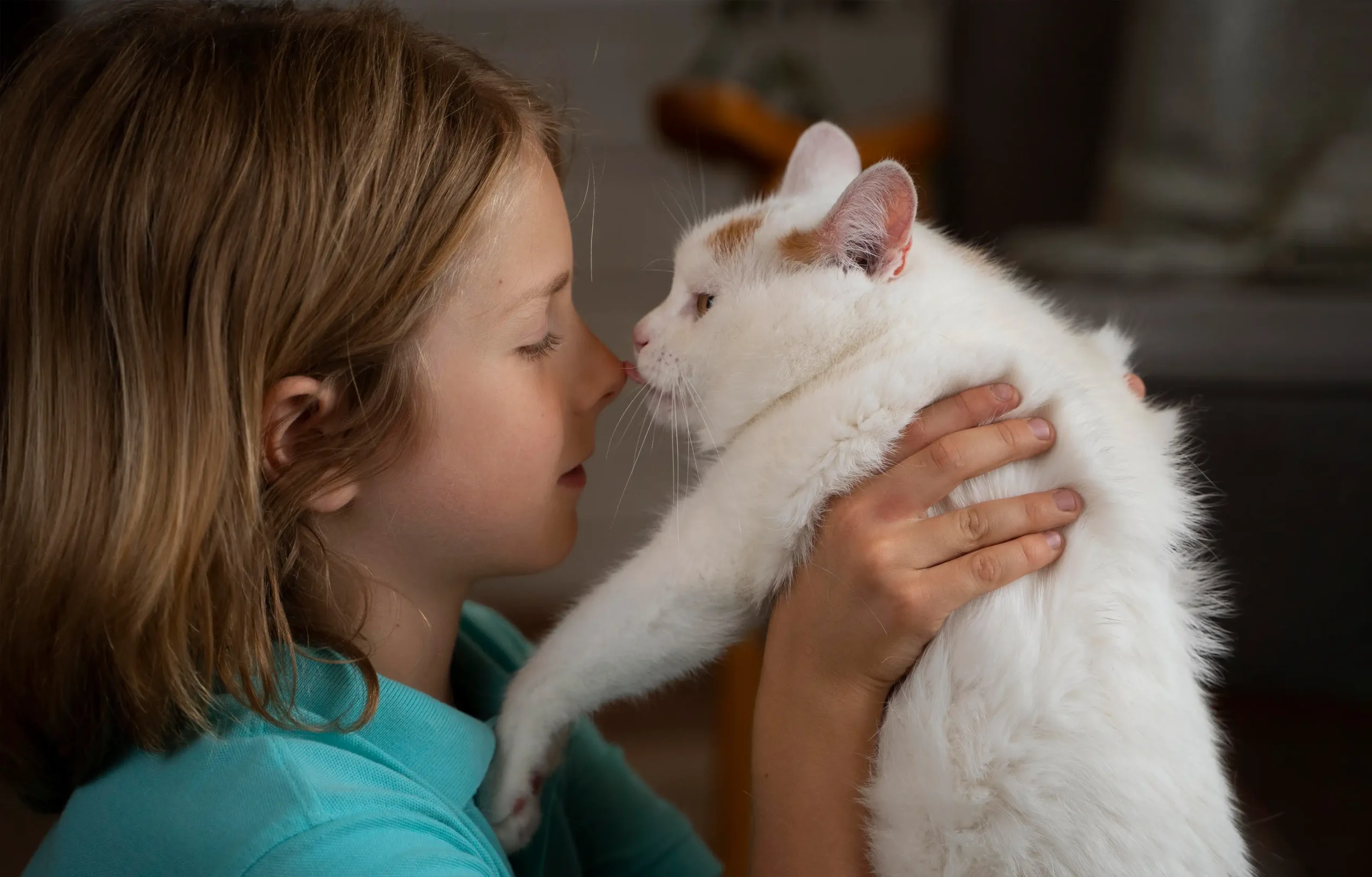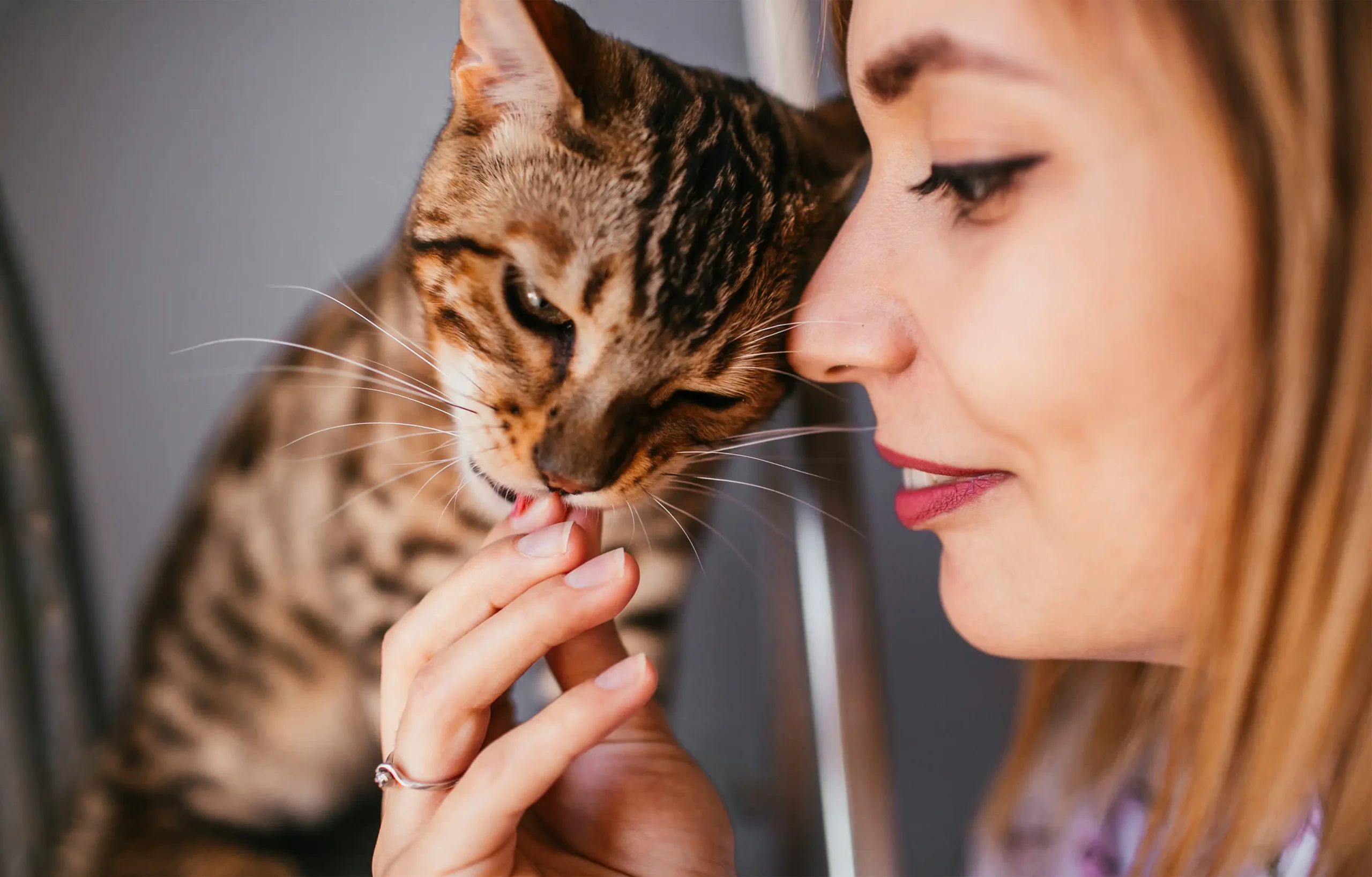Why Does My Cat Lick Me? 7 Possible Reasons
If you've ever found yourself wondering, "why does my cat lick me?" you're not alone. Cats are fascinating creatures, and their behaviors often leave us puzzled. One common behavior that many cat owners observe is their feline friend licking them. But what does it mean when a cat licks you? Let's delve into the reasons behind this behavior and explore the question, "why do cats lick you?"
1. Affection and Social Bonding
One of the most common reasons why cats lick you is to express affection. Cats are known for their grooming habits, and this behavior is not limited to themselves or other cats. When a cat licks you, it could be a sign of social bonding. This behavior, known as
allogrooming, is a way for cats to strengthen their social bonds. By licking you, your cat is essentially treating you as part of their family. For more insights into this behavior, check out this comprehensive guide on cat behavior.
2. Seeking Attention
Cats are smart and quickly learn that certain behaviors can get them the attention they crave. If your cat has noticed that licking you results in you talking to them or petting them, they may continue this behavior to seek attention. This is their way of communicating with you and ensuring they get the interaction they desire.
3. Marking Their Territory
Cats have scent glands on their tongues, and when they lick you, they are marking you with their scent. This is a way for them to identify you as part of their territory or group. By doing this, your cat is essentially saying, "you are mine." This behavior is similar to how cats rub their faces against objects or people to mark them with their scent.

4. Kitten-Like Behavior
If your cat was separated from their mother too early, they may exhibit behaviors that are typical of kittens, such as licking. This could be a way for them to seek comfort and the familiar feeling of nursing. In such cases, you might also notice your cat kneading and purring while they lick you. This behavior is a sign that your cat feels safe and secure with you.
5. Licking for Taste
Cats have a keen sense of taste and smell, and they may lick you to investigate interesting scents or flavors. This could be due to the lotion, shampoo, or other products you use. However, it's important to be cautious as some products can be harmful to cats. For information on what products are safe for your cat, visit this resource on cat safety.
6. Anxiety and Stress
Licking can also be a displacement behavior for cats experiencing anxiety or stress. If your cat is feeling stressed, they may lick you as a way to self-soothe. It's essential to identify any potential triggers for your cat's anxiety, such as changes in the environment or loud noises. If left unchecked, this behavior can become compulsive.
7. Medical Issues
In some cases, excessive licking can be a sign of a medical issue. If your cat is licking you or objects in their environment excessively, it might be due to pain, discomfort, or an underlying health condition. If you notice a sudden increase in licking behavior, it's best to consult your veterinarian.
Is It Safe for Your Cat to Lick You?
While generally safe, there are some risks associated with allowing your cat to lick you. Cats can carry bacteria in their mouths, which can lead to infections if they lick an open wound. Additionally, some medical ointments or products you use on your skin can be harmful to your cat if ingested. To learn more about the potential risks, read this article on cat health.

How to Stop Your Cat from Licking You
If you find your cat's licking uncomfortable or annoying, there are ways to discourage the behavior without harming your relationship with your pet. Here are some tips:
Cover Up: Wear long-sleeved clothing or use a small towel to cover your skin when interacting with your cat.
Walk Away: If your cat starts licking, get up and walk away. Ignoring the behavior can help reduce it over time.
Redirect: Offer your cat a toy or treat to redirect their attention.
Reward Good Behavior: When your cat interacts with you without licking, reward them with praise, petting, or play.
Environmental Enrichment: Provide your cat with plenty of toys, vertical spaces, and interactive playtime to keep them engaged and reduce stress.
If your cat's licking persists or becomes excessive, it's important to consult your veterinarian to rule out any medical or emotional issues.
In Conclusion
Understanding why your cat licks you can help you better appreciate your feline friend's behavior and strengthen your bond. Whether it's a sign of affection, a way to seek attention, or a response to anxiety, knowing the reasons behind this behavior can enhance your relationship with your cat.
For more resources, visit
Kissingpet Blog

One Response